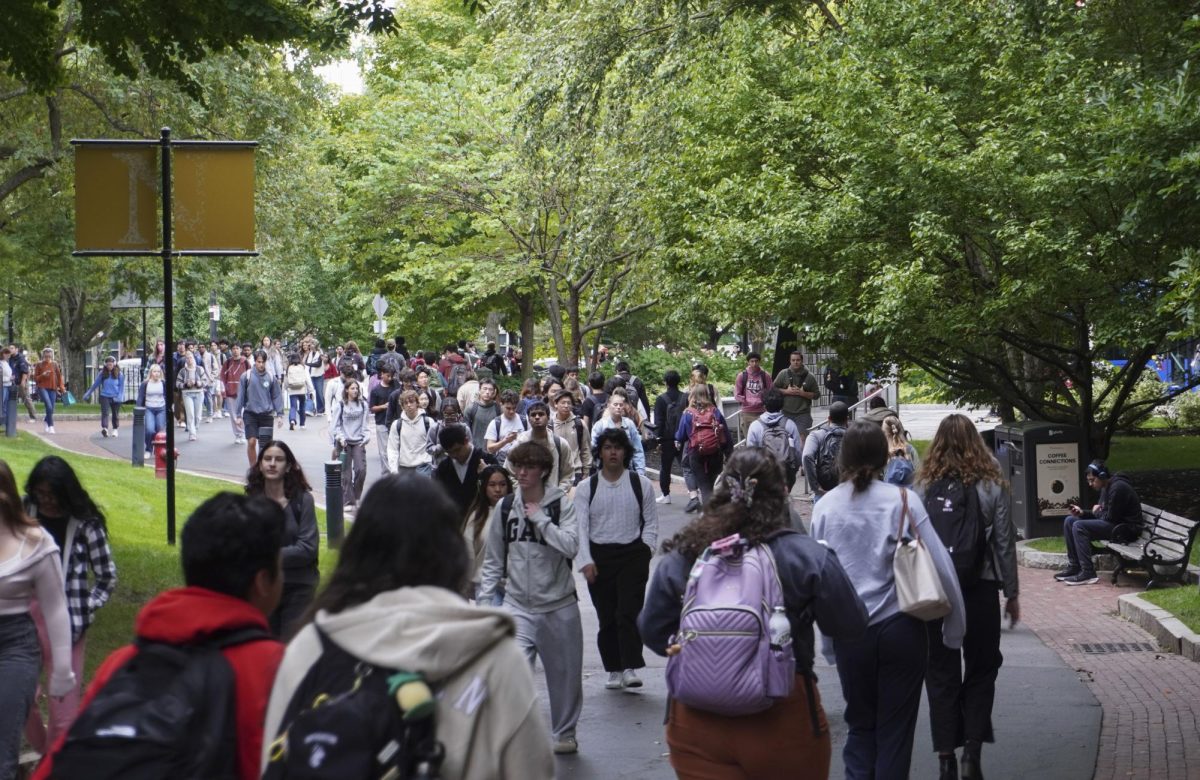About a year ago, Amanda Correa, a middler nursing major, hurt herself in a dancing misstep and spent most of the night in the emergency room. She left the hospital diagnosed with a knee injury and equipped with crutches. She hobbled around campus, struggling to get from class to class, but the falling snow was just too much. She called the Northeastern University Division of Public Safety (NUPD) to try to get a ride home, but they told her they couldn’t give her one. Instead, NUPD recommended she call the Disability Resource Center (DRC), an office whose sole purpose is meeting the needs of disabled students.
But officials there told her that she couldn’t get any special services and that she needed to request assistance four weeks in advance, DRC officials said no exceptions could be made for her unplanned injury, The News reported at the time.
The Student Government Association (SGA) pledged “immediate and prospective action” for situations like Correa’s, said Susan Dye, SGA vice president for student services at the time. The organization began to work with Vice President for Student Services Ed Klotzbier to find a solution. It seemed everything was working out.
But almost a year later, history has repeated itself. On his blog, Klotzbier wrote about a recent incident where another student was told by the DRC that they couldn’t provide assistance without four weeks notice. Klotzbier seemed genuinely surprised by this problem. He was, after all, one of the people working to fix the problem.
Joey Fiore, too, said he was suprised that the issue still existed. He first heard about Correa’s plight when he was running for SGA president, a position he now holds.
“[U]p until this afternoon, I was under the impression the issue had been dealt with,” Fiore told The News last week.
How could students be facing the same problems that were supposed to have been solved almost a year ago? How could Klotzbier, an adminstrator who works directly with the student body, not be aware the problem had not been solved? And how did Fiore, who raised the issue during his campaign, not know that change had not been accomplished?
It seems the DRC has slipped under the radar for so long, treating injured students almost the exact way it did before the issue was raised, despite the fact that everyone thought they had accomplished something.
Perhaps the incident Klotzbier mentioned was a one-time fluke, and most of the students who approached the DRC for help got what they needed. But no injured student should be told he or she will have to wait to get help. The NU Shuffle is one thing, when students are inconvenienced by Northeastern bureaucracy, but forcing an injured Northeastern student to hobble around campus because an office can not or will not make arrangements fast enough is irresponsible and unacceptable.
The problem, DRC Dean Ruth Bork said, was that there is no mechanism to transport students with temporary disabilities. Instead of saying their is no solution, Bork and the DRC must make a solution. It if doesn’t work, fix it.
Last year, students and administrators responded quickly to this issue, and it seemed that real change was imminent. But now, it seems nothing has really happened. Four weeks is too long for an injured student to have to wait. Reform to the DRC will definitely be difficult, but those difficulties must be overcome.
The DRC must be held accountable.









